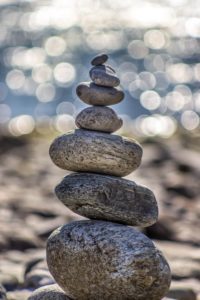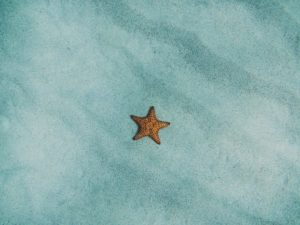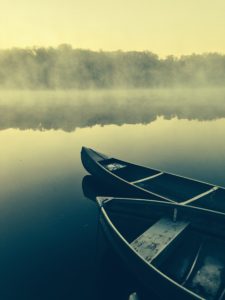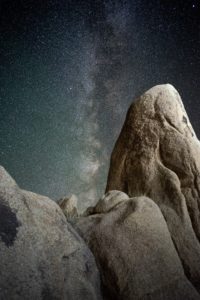Don’t Be Where the Blow Lands
My partner has trained in Aikido, and he relates hearing the above advice years ago from his teacher. Ever since he repeated it to me, I’ve been turning it over in my mind.
We lately found a Tai Chi teacher and joined a class. I’ve wanted to do Tai Chi for a long time, and it’s every bit as much fun as I always imagined it would be. I practice every day, and part of my practice is meditating on that wonderful piece of subtle Eastern wisdom: Don’t be where the blow lands.
Tai Chi is a Chinese martial art focusing on energy manipulation, practiced for defense and health. Many of the people in the class we joined are there to address balance and strength. I’m happy to support both my balance and my strength, but I’m learning Tai Chi primarily as a grounding and centering tool.
We’re learning a series of specific slow, repetitive movements that flow into one another. Each movement is called a form, and each form has its own, often poetic name: The bow, the crane, windmills, the lute. Tai Chi emphasizes locating and moving from one’s center, and it’s interesting how difficult I find that.
Learning the forms and stringing them together is no problem for me. It takes a lot of repetition to get arms and legs coordinated and figure out proper positioning, but I like repetition and want to practice. What I notice, though, is how easily I lose my center. I reach or step too far. I find myself up on one toe or another when I’m not supposed to be. I put one foot directly in front of another, like a model on a catwalk, instead of maintaining a more stable, wider-based stance. My ankles are weak and unsteady. If I’m doing one form at a time in isolation, I can tighten my core and be solid, but Tai Chi is flowing movement, albeit slow, and after a few different forms my center is gone.
Losing my balance in this way is a perfect metaphor for the way I’ve lived my life until recently. My energy and attention were always directed outward. I had very little ability to support myself; I relied on external support and I didn’t distinguish toxic inputs from healthy ones. I was too hungry and had too many unmet needs; I took a lot of poisoned bait. Not only did I stand where blows landed and bullets sped, I made a camp there and called it home. I believed I needed those blows and bullets, that they meant love, that it was my responsibility to endure them, and that I deserved them.
We can’t avoid life. Harsh words, verbal attacks, physical violence and unexpected events like fire, flood, riots and sudden public violence are going to happen. Even so, there are ways in which to meet life’s blows with all the grace and elegance of Tai Chi, and as I practice the forms and movements, I think about the skills that allow me to absorb the blow, to flow with it, and to step away from where it landed before it can be repeated.
I’m a big proponent of self-defense and I always carry a knife. I’m not afraid to fight. One day soon I’m going to learn to shoot and buy myself a gun, which I will carry. That kind of self-defense is a separate thing from my practice of Tai Chi. Tai Chi is not about any kind of an aggressor lurking in an alley or a parking lot; it’s about emotional and energetic safety.
Tai Chi, along with swimming, dancing, ritual work, walking and writing, is a way to call myself home, back to the center, back to my bones and the source of myself. Maintaining my center absolutely requires my undivided presence. I can’t center properly if I refuse to know all of who I am. I can’t maintain balance if I refuse to love all of who I am. The minute I try to amputate bits and pieces of myself, deny my thoughts and feelings or start tearing myself down in any way, I’m standing (again) where blows are guaranteed to land. When I catch myself justifying; pleading; waiting for external validation; trying to please; choice-making out of fear, denial and self-doubt, I know I’m standing on the shooting range with a target pasted over my heart and head.
I’ve spent too much of my life staggering under loads of other people’s shit, carrying vampires and dragging chains. Confusion, fear, perfectionism, disempowerment and constipated unacknowledged feelings have all kept me standing where the blows land. Arguing with what is has cemented me in the path of bullets. Clarity, self-confidence, making friends with my feelings and reclaiming my power allow me to deflect, block or better absorb the blows that come my way.
I’m intentional about living with the wisdom of choosing not to be where the blow lands. Reclaiming my center and moving mindfully from danger, not only physically but creatively and emotionally, all but eliminates my fear and anxiety. Concentrating on grounding leaves no room for anything but strength and rootedness. The meaning of my life is not out there, in the noise and chaos of what others think, say and do. The meaning of my life is in here, centered within the container of my body, expressed by what I think, say and do.
Now, if you’ll excuse me, I have to go see if I can remember the windmills and the lute from yesterday’s class.
All content on this site ©2017
Jennifer Rose
except where otherwise noted






